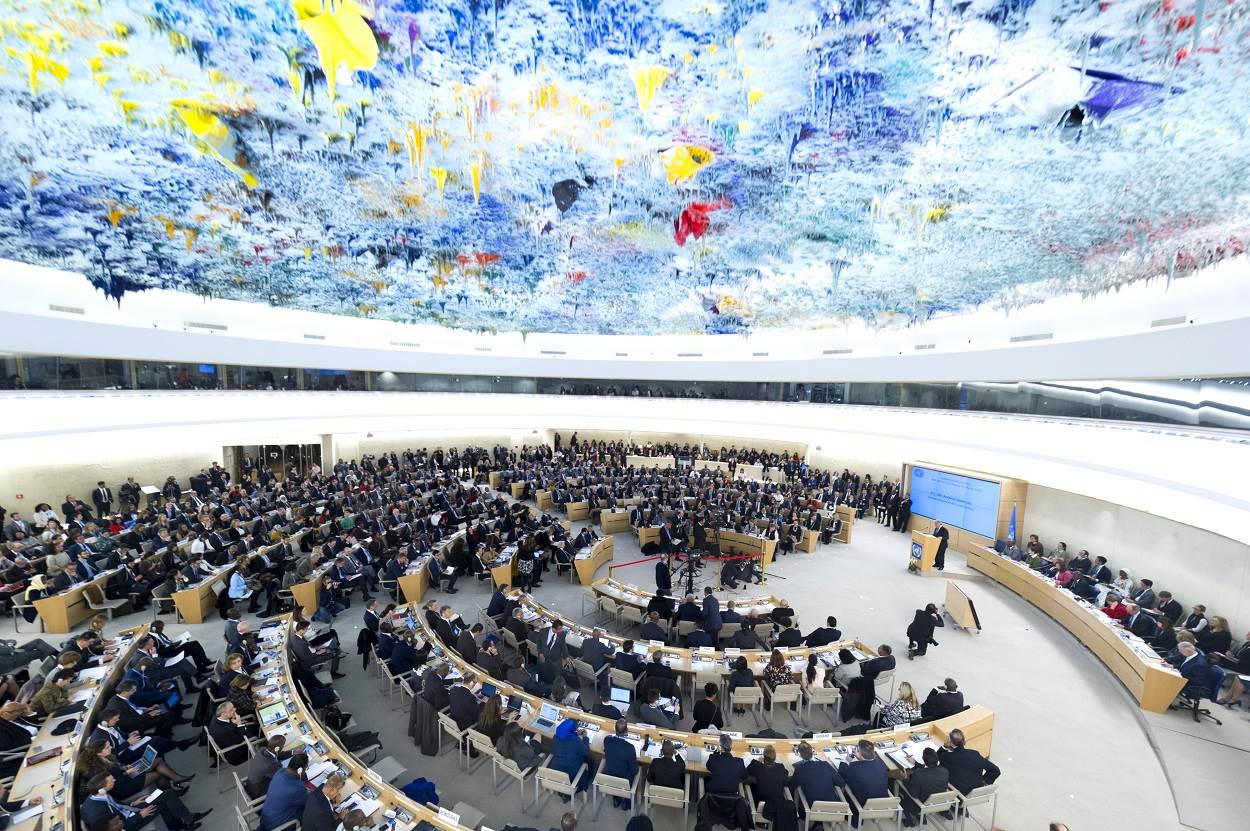Ávarp í umræðum með vinnuhóp um mismunun á grundvelli kyns og vinnuhóp um viðskipti og mannréttindi
Fulltrúi Svíþjóðar flutti ávarp í mannréttindaráðinu 27. júní 2019 í umræðum með vinnuhóp um mismunun á grundvelli kyns og vinnuhóp um viðskipti og mannréttindi.
41st session of the UN Human Rights Council
Clustered interactive dialogue with WG on Discrimination Against Women and WG on Business and Human Rights
27 June 2019
Delivered by Sweden on behalf of the Nordic-Baltic countries
Mr/Madame Chair,
I have the honor to make this statement on behalf of the Nordic-Baltic countries: Denmark, Estonia, Finland, Iceland, Latvia, Lithuania, Norway and my own country Sweden.
Discrimination against women and girls in law and in practice is a human rights violation in itself. It also severely hampers women’s and girls’ enjoyment of a broad range of other human rights: civil and political as well as economic, social and cultural rights, including sexual and reproductive health and rights. Discriminatory legislation must be abolished. Tradition, religion, culture or practice can never be invoked to restrict or relativize human rights.
We commend the Working Group for your important work and thank you for your comprehensive report on the deprivation of liberty of women, focusing on its underlying causes. In relation to this, we would like to ask the Working Group:
- What measures would you recommend States to take to combat the various forms of gender stereotypes that may lead to or “justify” women’s confinement, as outlined in your recent report?
Mr/Madame Chair,
The Nordic-Baltic countries are fully committed to implementing the UN Guiding Principles on Business and Human Rights, which constitute the authoritative framework in this field. We strive to develop and implement National Action Plans in order to honour the UNGPs. We thank the Working Group for your important report on the gender dimensions of the UNGPs, and would like to ask the Group:
- What are your key recommendations to States in order to ensure that the implementation of the UNGPs fully take into account the specific needs of various groups of women and girls?
I thank you.

